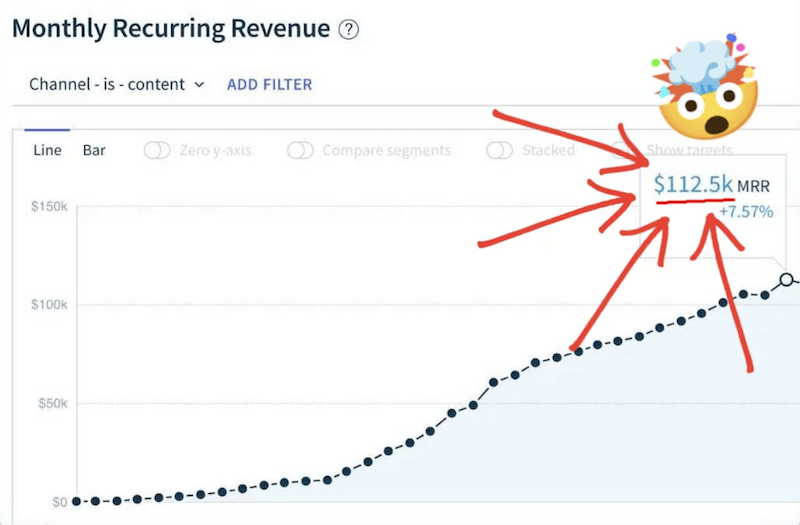What is a day trader?
A day trader is someone who buys and sells securities within the same trading day. The goal is to make a profit from short-term price changes. It’s a fast-paced form of trading, and is usually associated with a relatively large amount of trades.
Day trader fast facts
Day trading is legal in most countries, but regulators and brokers can impose restrictions.
Day trading can be profitable, but it is not a “get rich quick” scheme
You don’t need a ton of money to day trade.
Professional day trading apps are a great way to reduce risks and time spent on picking and monitoring assets.
You can trade the same asset multiple times within a day.

Day traders make profit from buying and selling an asset on the same day. Photograph: TradingView
What is the difference between a day trader and a long-term investor?
Day traders buy and sell securities in a short time span or even within the same day. That’s a different strategy from long-term investors who sometimes hold their assets for years.
Day traders take high risks because the market prices can raise or drop drastically within the same day. To make profit and reduce risk of losses, day traders rely on technical analysis and quick decision making.
To pick assets, long-term investors do a fundamental analysis, which gives them a broad view. Their investments are not exposed to short-term price fluctuations and they take time before making trading decisions.
Can a beginner do day trading?
Yes, anyone can start day trading, but it comes with challenges and risks. Therefore, beginners often try before they buy. Some day trading apps offer paper trading. This allows users to practice with virtual instead of real money.
AI trading apps can speed up the learning curve. These apps do the heavy lifting of analyzing and picking stocks. Algo trading apps can also automatically execute orders, but it’s best to not blindly rely on them as a beginner.
Trading only money you can miss is another way to reduce the risks of day trading as a beginner. If you lose it, it will not hurt as much as when it’s money you need.

Charts are vital instruments for day traders to choose the best moments to buy and sell. Photograph: Trade-Ideas
Is day trading actually profitable?
Day trading can be profitable, but even successful day traders don’t have any guarantee they will make profits in the long run.
That applies to any form of trading, but day trading is the most risky form of investing. The price of assets can change quickly and lead to substantial losses in a short period.
To make an income from day trading, it is best to use professional day trading platforms with real-time market data, technical analysis tools, order signals, and risk management tools.
What is the three day rule in trading?
The three day rule in trading states you should not make trading decisions for at least three days after important market events take place. These events can, for example, be negative news about a company or world events that affect the market.
Defenders of the three day rule believe that emotions can lead to poor decisions. By allowing the market to cool down, investors could more objectively measure the real impact of events on the market.
This rule doesn’t guarantee financial success. It is just advice to prevent impulsive decisions and react to price changes driven by emotions of other investors.
Can I buy and sell the same stock multiple times in a day?
Yes, you can buy and sell the same stock multiple times a day. However, you need to take some things into consideration:
- For every order, you may have to pay transaction costs or commissions to your broker. You also pay taxes on the profit you make with trades.
- Some broker platforms limit the amount of orders within a certain period. That may prevent you from buying and selling the same stock multiple times from the same broker.
- Brokers can lend money to traders to increase their buying power. But if you make at least four trades within five business days, the broker can classify you as a Pattern Day Trader (PDT) and set restrictions on the amount of orders you can execute.
- Monitoring a stock all day is hard. The best you can do is to use a professional trading platform that can send you warnings or even execute orders automatically.

Day trading apps constantly monitor the market and give useful suggestions to pick assets. Photograph: TrendSpider
Do I need 25K to day trade?
No, it’s a common misunderstanding that you need to have $25,000 to day trade. You can start with less than that.
However, the 25K figure is not a random amount, but defined by FINRA (Financial Industry Regulatory Authority) to protect brokers from traders who borrow money from them. The 25K serves as a buffer against losses.
The 25K rule also protects inexperienced traders and the market from volatility caused by a high activity of day traders who don’t have the funds to pay for losses.
Can you be a day trader with no money?
No, you need money to be a day trader.
- You need capital in order to buy assets.
- Brokers charge transaction costs for selling and buying securities.
- You need to pay taxes on the profit you make with day trading.
- Trading platforms can charge a subscription fee. In return, you get access to tools that will, for example, help you pick and monitor securities.
- Some brokers allow users to borrow money from them, but only if they have at least $25,000 in their account.

Tax declaration software for day traders drastically reduces the time spent on administration. Photograph: TurboTax
How long does it take to learn day trading?
The time needed to learn day trading depends on several factors.
- Prior knowledge and experience with financial markets and trading can reduce the time to get started.
- Beginners are strongly advised to learn at least the basics of trading, such as technical analysis, strategies, risk management, and so on.
- The time someone invests in learning and practicing also plays a role. Someone who is fully focused on learning day trading will need less time in total than someone who studies, for example, an hour per week.
- People with strong analytical skills will need less time to learn day trading. Algorithmic trading apps can somehow compensate for this, because they can trade automatically and allow day traders to focus more on their trading strategy.
Is day trading legal?
Yes, day trading is legal in most countries, including the United States. However, insider trading, manipulating the market, and money laundering are illegal.
Brokers can also impose restrictions on day trading activities. They can, for example, limit the amount of orders or forbid certain algorithmic trading strategies.
Taxes are another important legal aspect of day trading. Each country has different regulations to declare income from day trading activities. People who violate the tax legislation can be penalized with fees or criminal prosecution.
Is day trading a good idea?
Day trading can be a good idea for anyone who wants to invest money in the short-term and turn it into profit. However, day trading is not a get rich quick scheme.
It involves taking risks. You can arm yourself by studying the financial market, learning how to use day trading tools, improving your analytical skills, and controlling emotional impulses.
For some people who are interested in becoming a retail trader, alternative investment strategies can be a better idea. Think, for example, of long-term investments to build wealth in the long run.

